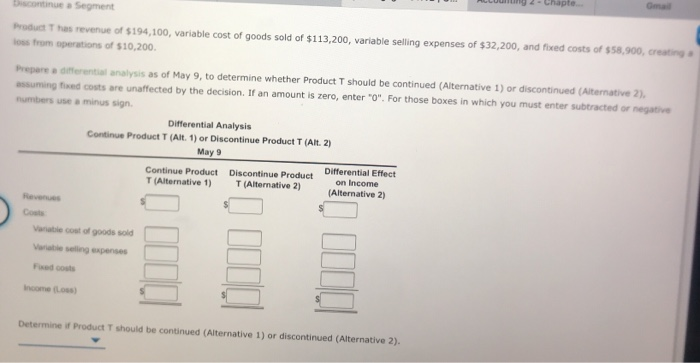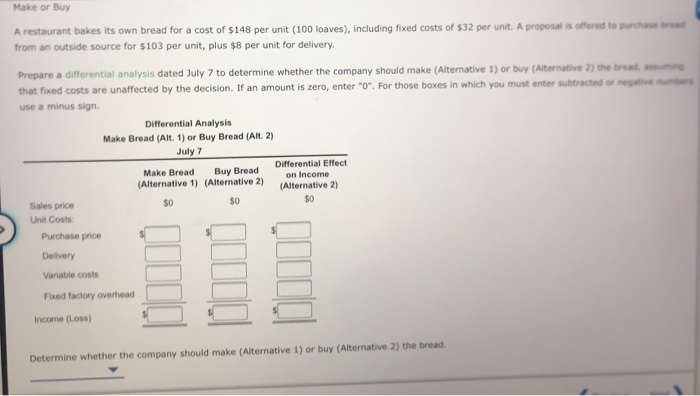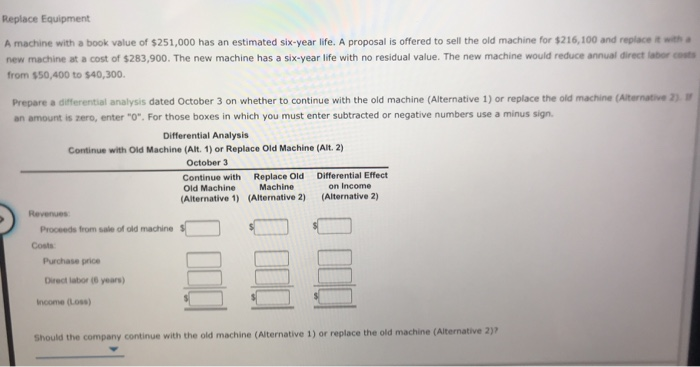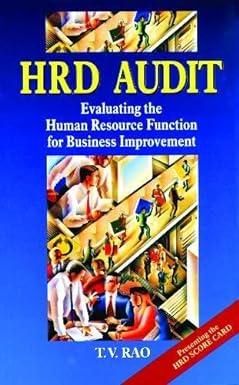Gmail COunting 2-Chapte. iscontinue a Segment Product T has revenue of $194,100, variable cost of goods sold of $113,200, variable selling expenses of $32,200, and fixed costs of $58,900, creating a loss from operations of $10,200 Prepare a differential analysis as of May 9, to determine whether Product T should be continued (Alternative 1) or discontinued (Alternative 2), assuming fixed costs are unaffected by the decision. If an amount is zero, enter "0". For those boxes in which you must enter subtracted or negative numbers use a minus sign Differential Analysis Continue Product T (Alt. 1) or Discontinue Product T (Alt. 2) May 9 Differential Effect on Income (Alternative 2) Discontinue Product T (Alternative 2) Continue Product T (Alternative 1) Revenues Costs Variable cost goods sold Vaiable selling expenses Fxed costs Income (Loss) Determine if Product T should be continued (Alternative 1) or discontinued (Alternative 2). Make or Buy A restaurant bakes its own bread for a cost of $148 per unit (100 loaves), including fixed costs of $32 per unit. A proposal is offered to purchase bread from an outside source for $103 per unit, plus $8 per unit for delivery Prepare a differential analysis dated July 7 to determine whether the company should make (Alternative 1) or buy (Alternative 2) the bread, assuming in which you must enter subtracted or negative umer are unaffected by the decision. If an amount is zero, enter "0". For those boxes that fixed costs use a minus sign. Differential Analysis Make Bread (Alt. 1) or Buy Bread (Alt. 2) July 7 Differential Effect on Income Buy Bread Make Bread (Alternative 1) (Alternative 2) (Alternative 2) $0 $0 $0 Sales price Unit Costs Purchase price Delivery Variable costs Fixed factory overhead Income (Loss) Determine whether the company should make (Alternative 1) or buy (Alternative 2) the bread. Replace Equipment A machine with a book value of $251,000 has an estimated six-year life. A proposal is offered to sell the old machine for $216,100 and replace it with a new machine at a cost of $283,900. The new machine has a six-year life with no residual value. The new machine would reduce annual direct labor costs from $50,400 to $40,300. Prepare a differential analysis dated October 3 on whether to continue with the old machine (Alternative 1) or replace the old machine (Alternative 2) an amount is zero, enter "o". For those boxes in which you must enter subtracted or negative numbers use a minus sign Differential Analysis Continue with Old Machine (Alt. 1) or Replace Old Machine (Alt. 2) October 3 Differential Effect on Income (Alternative 2) Replace Old Machine (Alternative 2) Continue with Old Machine (Alternative 1) Revenues Proceeds from sale of old machine $ Costs Purchase price Direct labor (6 years) Income (Loss) Should the company continue with the old machine (Alternative 1) or replace the old machine (Alternative 2)









